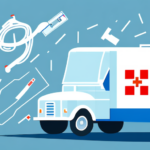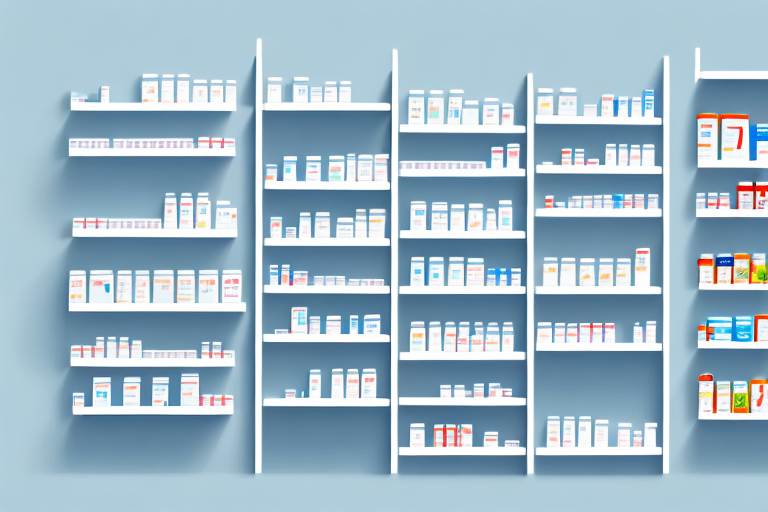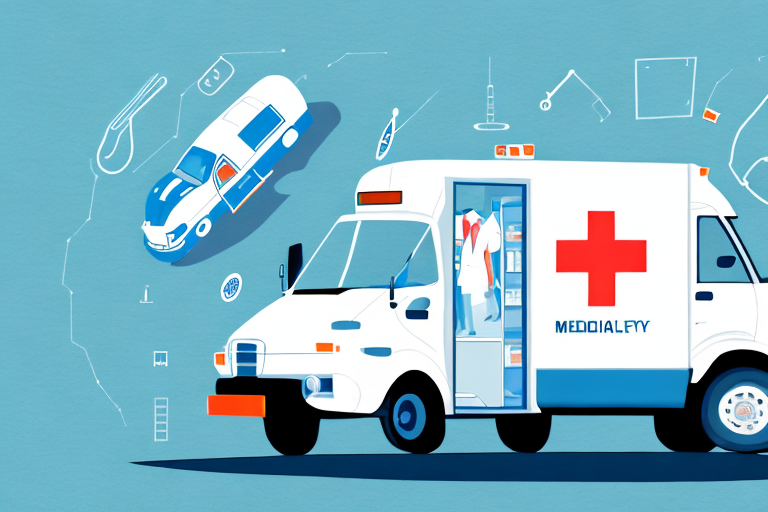Discovering the Benefits of Medical Delivery Jobs
If you are seeking a career that combines your passion for helping others with the opportunity to work in a fast-paced environment, medical delivery jobs may be the perfect fit. This article explores the nature of medical delivery jobs, the duties and responsibilities involved, their importance in healthcare, how to get started and excel in this field, salary expectations, challenges, future outlook, and tips for maintaining good health while working as a medical delivery driver.
Understanding Medical Delivery Jobs
Medical delivery jobs involve the transportation of medical supplies, equipment, and medications to various healthcare facilities such as hospitals, clinics, pharmacies, and directly to patients' homes. These roles require precision and reliability, as timely and accurate deliveries are crucial for patient care.
Types of Medical Delivery Roles
- Medication Delivery Drivers: Focus on delivering prescriptions and over-the-counter medications to pharmacies and patients.
- Supply Chain Logistics: Manage the distribution of medical equipment and supplies to healthcare facilities.
- Specialized Transport: Handle the delivery of sensitive items like blood samples, organs for transplant, and hazardous materials.
Job Duties and Responsibilities
Medical delivery drivers are tasked with more than just driving. Their responsibilities include:
- Accurate Delivery: Ensuring the correct items are delivered to the right locations.
- Inventory Management: Tracking and managing inventory levels during transit.
- Compliance: Adhering to healthcare regulations and protocols for handling medical materials.
- Customer Interaction: Providing assistance to patients and communicating effectively with healthcare providers.
The Importance of Medical Delivery Services in Healthcare
Medical delivery services play a vital role in the healthcare system by:
- Ensuring Continuity of Care: Timely deliveries of medications and supplies enable healthcare professionals to provide uninterrupted care.
- Supporting Healthcare Facilities: Keeping hospitals and clinics stocked with necessary equipment and supplies.
- Enhancing Patient Outcomes: Quick access to medications and supplies can be critical for patient recovery and wellbeing.
During the COVID-19 pandemic, the importance of medical delivery services was underscored as drivers ensured the continuous supply of essential items like personal protective equipment (PPE) and medications, minimizing the risk of virus transmission.
How to Start a Career in Medical Delivery
Entering the medical delivery field typically requires:
- A high school diploma or GED.
- A valid driver's license with a clean driving record.
- Good physical condition to handle the demands of the job.
- Strong communication skills.
Additional certifications, such as knowledge of medical terminology or hazardous materials handling, can enhance job prospects. Employers may also look for candidates who are detail-oriented and reliable.
Skills Required for Success
To excel as a medical delivery driver, the following skills are essential:
- Excellent Driving Skills: Safe and efficient navigation is crucial.
- Time Management: Ability to adhere to tight schedules and delivery windows.
- Attention to Detail: Ensuring accuracy in deliveries and inventory management.
- Communication: Effective interaction with healthcare providers and patients.
- Knowledge of Regulations: Understanding healthcare compliance and safety protocols.
Salary Expectations
The compensation for medical delivery drivers varies based on experience, location, and employer. According to the Bureau of Labor Statistics, the median annual wage for light truck or delivery services drivers was approximately $37,000 as of 2022, with the potential to earn between $24,000 and $50,000 annually. Many positions also offer benefits such as health insurance, retirement plans, and paid time off.
With the growing demand for healthcare services, there are opportunities for advancement and increased earnings through specialized certifications or managerial roles within the delivery sector.
Challenges and Overcoming Them
Medical delivery drivers face various challenges, including:
- Traffic and Weather: Navigating through congested areas and adverse weather conditions.
- Time Pressure: Delivering time-sensitive medications and supplies accurately.
- Physically Demanding Work: Handling heavy or sensitive equipment.
- Exposure to Hazardous Materials: Safely transporting potentially dangerous substances.
To overcome these challenges, drivers should:
- Adopt safe driving practices and stay informed about weather conditions.
- Utilize GPS and route planning tools to optimize delivery paths.
- Undergo proper training for handling and transporting hazardous materials.
- Implement stress-management techniques to maintain focus and efficiency.
Future Outlook of the Medical Delivery Industry
The medical delivery industry is poised for growth, driven by factors such as an aging population, increased demand for home healthcare services, and advancements in medical technology. The Bureau of Labor Statistics projects a steady growth rate for delivery services, suggesting robust job opportunities in the coming years.
Innovations in logistics and the integration of technology, such as automated routing and real-time tracking, are enhancing the efficiency and reliability of medical deliveries, further solidifying the industry's importance in healthcare.
Maintaining Health as a Medical Delivery Driver
To sustain good health while managing the demands of a medical delivery job, drivers should:
- Take regular breaks to avoid fatigue.
- Maintain a balanced diet and stay hydrated.
- Incorporate physical activity into their routine to stay fit.
- Prioritize adequate sleep to ensure alertness on the road.
- Avoid smoking and limit the intake of unhealthy foods.
Insights from a Successful Medical Delivery Driver
We spoke with Sarah, a seasoned medical delivery driver with over six years of experience. Sarah emphasizes the importance of reliability and excellent customer service. "Being punctual and ensuring that deliveries are accurate are crucial. Building good relationships with healthcare providers and patients makes the job more rewarding," she shares.
Sarah advises aspiring medical delivery drivers to invest in good organizational skills and to stay informed about the latest healthcare regulations. "Continuous learning and adapting to new technologies can significantly enhance your efficiency and career prospects," she adds.
In conclusion, medical delivery jobs offer a fulfilling career path for those passionate about healthcare and service. With the right skills and dedication, medical delivery drivers play an indispensable role in the healthcare system, ensuring that essential supplies reach those in need promptly and safely.



















